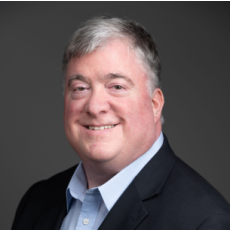TLG Aerospace is an aerospace engineering services company founded in 2008 that specializes in full vehicle analysis and offers design and certification for new and modified aircraft in addition to related aerospace products.
As an engineer by training, how did the idea to launch TLG Aerospace come about in 2008?
I started as an engineer at Boeing, which was fantastic since it offered so many training and mentoring opportunities to soak in. After the five-year mark, I spent a few years with Lockheed Martin in Texas working on fighter aircraft. After returning to Boeing in Seattle, I joined a small company, Aviation Partners when they were just a small company of 50 people. They pioneered the winglets on airplanes, saving around 6% on fuel and saving close to 15 billion gallons of fuel since inception. The business model was to have a few experts within the company and subcontract out work to avoid ramping up staff and then laying them off between projects.
As an engineering manager, it was my job to find companies to subcontract work to, and I realized there weren't many specializing in our niche. It was clear there was a need for high-quality engineering services from a small, nimble company that could be flexible with project sizes. We started TLG in 2008 with eight people, and now, 16 years later, we’ve grown to about 70 engineers.
Seattle is world-renowned as an established aviation hub. Is the city still an advantageous place to operate for smaller startups?
I believe that it still is; Seattle has a lot of talent and knowledge, and one of the main FAA certification offices is here, which is crucial. Washington State is supportive of the aerospace industry and understands its importance. Historically, major companies like Microsoft have attracted talent to the area, and the same is true for aerospace. There are numerous small and medium-sized companies in Seattle that could work together to design, develop, build, and certify a new airplane outside of Boeing.
Seattle’s combination of Boeing and numerous small companies creates a fantastic environment. It’s similar to how Microsoft’s presence spawned many smaller tech companies in the area. The aerospace industry benefits from this clustering of talent and resources, making Seattle a strong hub for innovation and growth in aviation.
As an engineering firm, what exactly are the services TLG Aerospace offers, and who are some of your customers and interesting projects you are working on?
TLG Aerospace is responsible for much of the 'behind-the-scenes' work in the aerospace industry, helping real companies design, build, certify, and get their products flying. From the concept phase through preliminary design, our team is involved in detailed design, testing, and certification, focusing on aerodynamics, flight sciences, and structural engineering. We conduct computer aerodynamics, wind tunnel testing, flight testing, and create physics-based flight simulators to determine the strength needed for aircraft parts. Over the years, we have expanded our structural engineering capabilities due to customer demand, providing physics-based models of aircraft to determine performance, fuel consumption, strength, and flying qualities.
We work on projects including converting passenger aircraft into freighters, especially post-COVID, when cargo demand increased. In advanced air mobility, we work with companies developing flying cars and electric aircraft. For example, we helped Eviation update their prototype electric aircraft for production to meet certification standards and are involved in projects for hydrogen-powered aircraft and space tourism with companies like Richard Branson’s and Jeff Bezos’ ventures.
Obtaining air certification can be a costly business. Is it at all possible to minimize this common challenge for customers?
Many see certification as daunting, but I view it as invaluable. Certification requirements encapsulate decades of safety history, which new aircraft companies can leverage. The key to minimizing costs is understanding these requirements from the start and designing prototypes accordingly.
We work closely with the FAA and EASA, who want to see safe, efficient aircraft developed. At TLG, we have FAA DERs on staff; these are trusted experts who help navigate certification processes from the beginning. By designing with certification in mind, the process becomes straightforward and cost-effective, ensuring compliance without unnecessary delays or costs.
What are the biggest challenges for TLG Aerospace in 2024, and how do you plan to overcome them?
A major challenge is clients underestimating the engineering expertise required, trying to do it themselves, and then calling us after spending all their money. We aim to get involved earlier in projects to help avoid costly mistakes. Another challenge is the talent gap. Aerospace engineering used to attract top talent, but now many engineers are drawn to other tech fields like AI.
While this creates a demand for our services, finding experienced engineers is tough. We bridge this gap by providing the necessary expertise, but we also need to attract and retain talent for our own growth.






